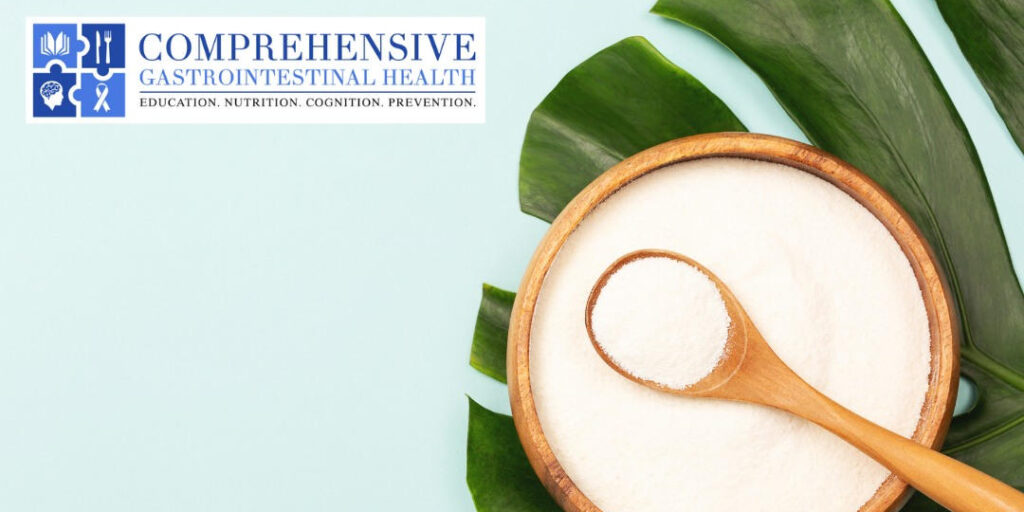The Ins and Outs of Collagen
The Ins and Outs of Collagen
by Danielle Genenz, MS, RDN, LDN, CPT
There is no shortage of collagen products sold by health and beauty markets today, but you may want to consider some important information before investing and ingesting. These industries have capitalized on collagen’s main role in the body to act as part of the “glue” that holds everything together. Connective tissue in bones, tendons, cartilage, and skin all depend on collagen for support. Collagen also plays a role in cellular functions including regulating immune response, rebuilding of tissues, communication between cells and tissue preservation. Thus, it is speculated to help everything from decreasing wrinkles and treating joint pain, to weight loss and muscle growth.
Collagen Composition and Absorption
Collagen is a protein made up of 19 amino acids, the majority of which include proline, hydroxyproline, and glycine. The compound is considered an incomplete protein because of a missing essential amino acid called tryptophan. The body cannot build this amino acid on its own and must obtain it from food. Collagen tends to absorb poorly so most manufacturers hydrolyze or chemically split the protein into small chains of amino acids in order to be transported most effectively into the bloodstream.
Food Sources
You do not need to take a collagen supplement in order to build healthy skin, joints, bones, and muscles. Consuming adequate amounts of protein found in food can supply the body with enough peptides to form these tissues. Some examples include meat, fish, egg whites, algae and bone broth.
Research on Collagen
There have been several studies showing the health benefits of collagen supplementation but outcomes are mixed and not well supported. Overall data is unclear if the improvement is due to the supplements themselves or the fact that study participants are consuming adequate amounts of protein in their diets. Most studies include very small numbers of research subjects, lack long-term outcomes data and are funded by collagen supplement industries which can introduce bias.
Important Considerations
Collagen degradation occurs during the natural aging process but is also the result of lifestyle factors. These include tobacco use, excessive alcohol consumption, over exposure to the sun, pollution and a diet high in added sugar. A collagen supplement cannot reverse the damage caused by those factors. There are also some precautions to consider. The FDA does not regulate the product for safety, purity and effectiveness. Collagen harvested from the bones and joints of conventional animals can have a buildup of chemicals and heavy metals over time. A final takeaway – if you’d like to save money, evade risks and avoid taking a supplement backed by inconclusive evidence, try consuming protein from whole food sources to support healthy tissues.
To learn more about your nutrition and supplement needs, schedule a consultation with one of our dietitians at 224-407-4400 or at www.compgihealth.com.
Information from this post was archived from an article in Todays’ Dietitian, March 2019 Issue, Vol. 21, No. 3 pg. 26, “Dietary Collagen– Should Consumers Believe the Hype? Janie Santa Cruze.

